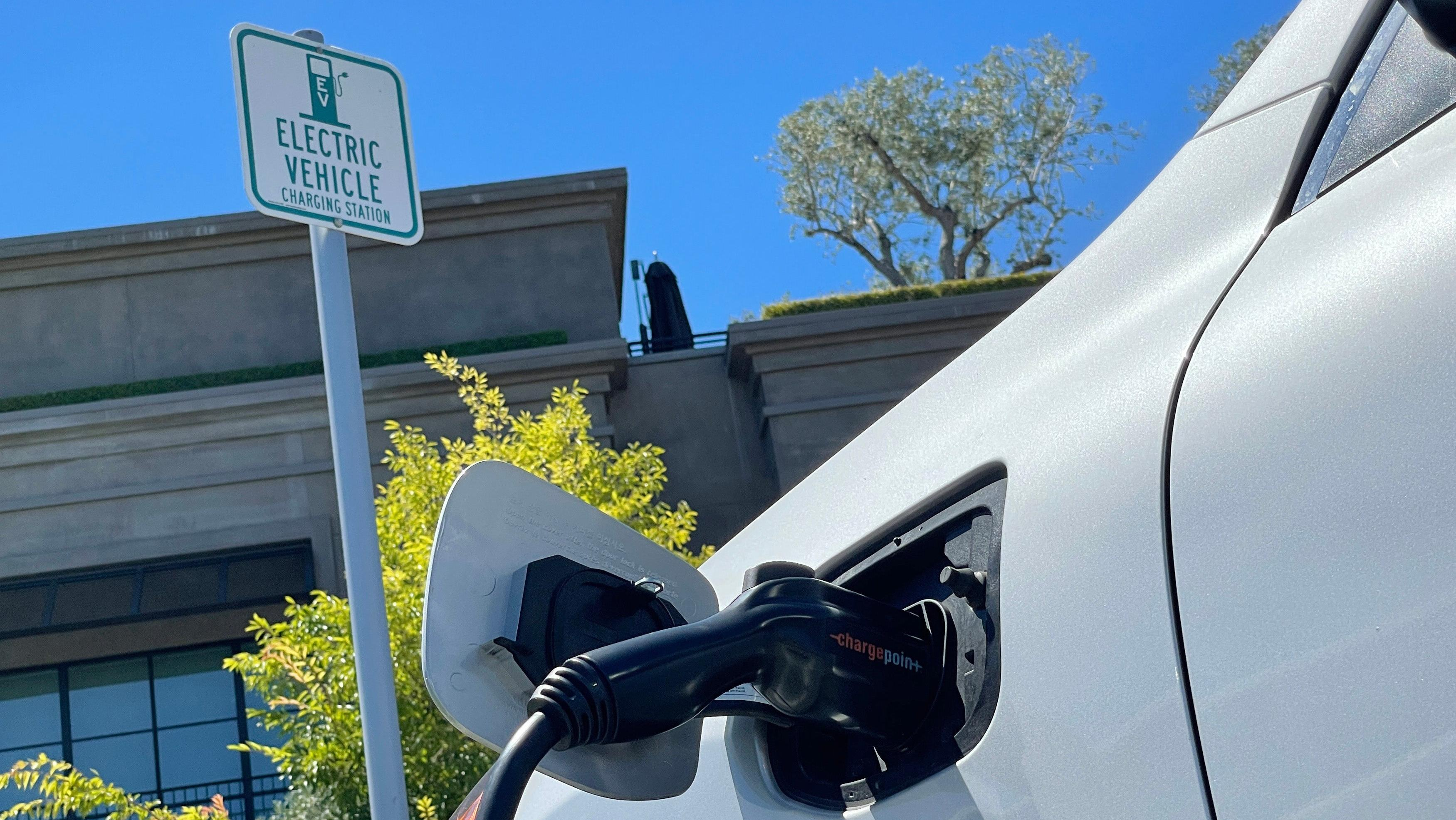Senate Democratic Deal Means EV Tax Credits Will Expand
The proposed legislation is a big deal for consumers and automakers that have already run out of credits.
A Senate Democrat deal between Majority Leader Chuck Schumer and West Virginia Senator Joe Manchin includes a new $4,000 tax credit for used electric vehicles and the extension of the existing $7,500 credit for new EVs. That's big news for automakers like General Motors, Tesla and Toyota, according to Bloomberg. It also gives car manufacturers billions in investment tax credits to retool factories to build greener cars.
It's part of a new legislative package that will save parts of President Joe Biden's domestic political agenda. That package contains around $369 billion for climate and energy spending.
Automakers will be able to continue offering the $7,500 credit for the purchase of new clean vehicles (or 30 percent of the price, whichever is less — the same goes with the $4,000 credit for used EVs). However, there are a few conditions that companies need to meet. Automakers will need to build cars with minerals that are extracted or processed in a country the U.S. has a free trade agreement with, and the cars must have a battery pack that includes a large percentage of components that were made or assembled in North America.
It's important to note that the use of the word "clean vehicles" in the bill means that fuel cell vehicles (FCEV) are now eligible for the credit.
Consumers who make clean car purchases at registered dealers would be allowed to receive discounts at the point of sale that are equal to the value of their credits for the first time. Car buyers would also be eligible to receive $4,000 for used clean cars for the first time.
The policies "will ensure that America builds the core technologies of the 21st Century here at home, and it will allow us to win the global clean transportation race," the Zero Emission Transportation Association, an industry group that advocates for a faster switch to electric models, said in a statement.
This legislation would remove the requirement that mandated qualified vehicles were only plug-in EVs. It also gets rid of the 200,000-vehicle per manufacturer cap that multiple manufacturers had already hit.
That being said, the deal does have two caps: price and income. Only cars under $55,000 are eligible. That number rises to $80,000 for trucks and SUVs, however. Used cars can only be a max of $25,000 to be eligible. Credits would also be capped to people making less than $150,000 for a single filing taxpayer, and $300,000 for joint filers on new cars. For used cars, those income levels are $75,000 and $150,000, respectively.
Bloomberg says EV supporters argue the tax credits are necessary to spur development in the plug-in car market.
According to Reuters, the deal would also provide $3 billion to the U.S. Postal Service to buy zero-emission vehicles and EV infrastructure. On top of this, another $1 billion would be earmarked for schools and other governmental agencies to buy heavy-duty vehicles like school buses and garbage trucks.
This is all well and good, and you know I hate being the bearer of bad news, but none of this matters if Arizona Senatorial Democrat Kyrsten Sinema doesn't also agree to the deal. We'll anxiously await her decision.
